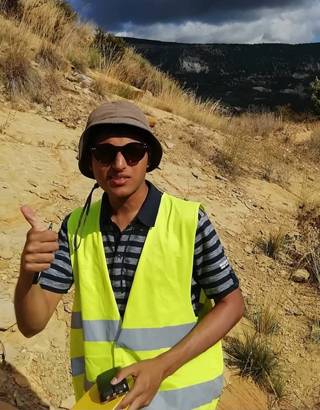To identify & target three volcanoes with low, moderate, and high magmatic water contents to reconstruct the evolution of their trace metal cargo using established petrological strategies.
PhD project title:
Implications of variable initial water content for mobilising magmatic metals in arc volcanoes.
 Project description:
Project description:

The migration and sequestration of metallic elements within magmatic systems modulates the environmental impacts of volcanic emissions and the development of ore deposits. Many elements classified as “environmental pollutants” by public health agencies are volatile in silicate melts. Volcanoes in different tectonic settings emit contrasting trace metal “fingerprints”, which are linked to differences in the relative timings of vapour and sulfide saturation. Arc volcanoes erupt magmas containing a wide range of primary water contents, spanning <1 wt% to >7 wt% H2O, inherited from heterogeneities in mantle source and subduction contributions. Magmatic water content influences the physical and chemical properties of silicate melts (e.g., viscosity and crystallisation dynamics) and is consequently a key control on the timing/pressure of vapour saturation and the conditions under which magmas are stored in the crust. However, the role of primary water content on metal partitioning has yet to be investigated systematically.
This project will identify and target three volcanoes with low, moderate, and high magmatic water contents to reconstruct the evolution of their trace metal cargo using established petrological strategies. This research will involve field sampling of erupted rocks and emitted metal aerosols. Laboratory work will include petrological analysis of melt inclusions and glasses, supplemented by ion probe analyses of volatile contents, and geochemical analysis of aerosols. In tandem, computer-based petrological and thermodynamic modelling will provide a framework for relating metal behaviour to crystallisation processes and the evolving properties of the exsolved vapour phase.
This project may also explore the potential for developing non-traditional monitoring approaches to assess the delivery of volcanic trace metal pollutants to the environment, with consequent implications for ecological science and hazard assessment.
 Close
Close

